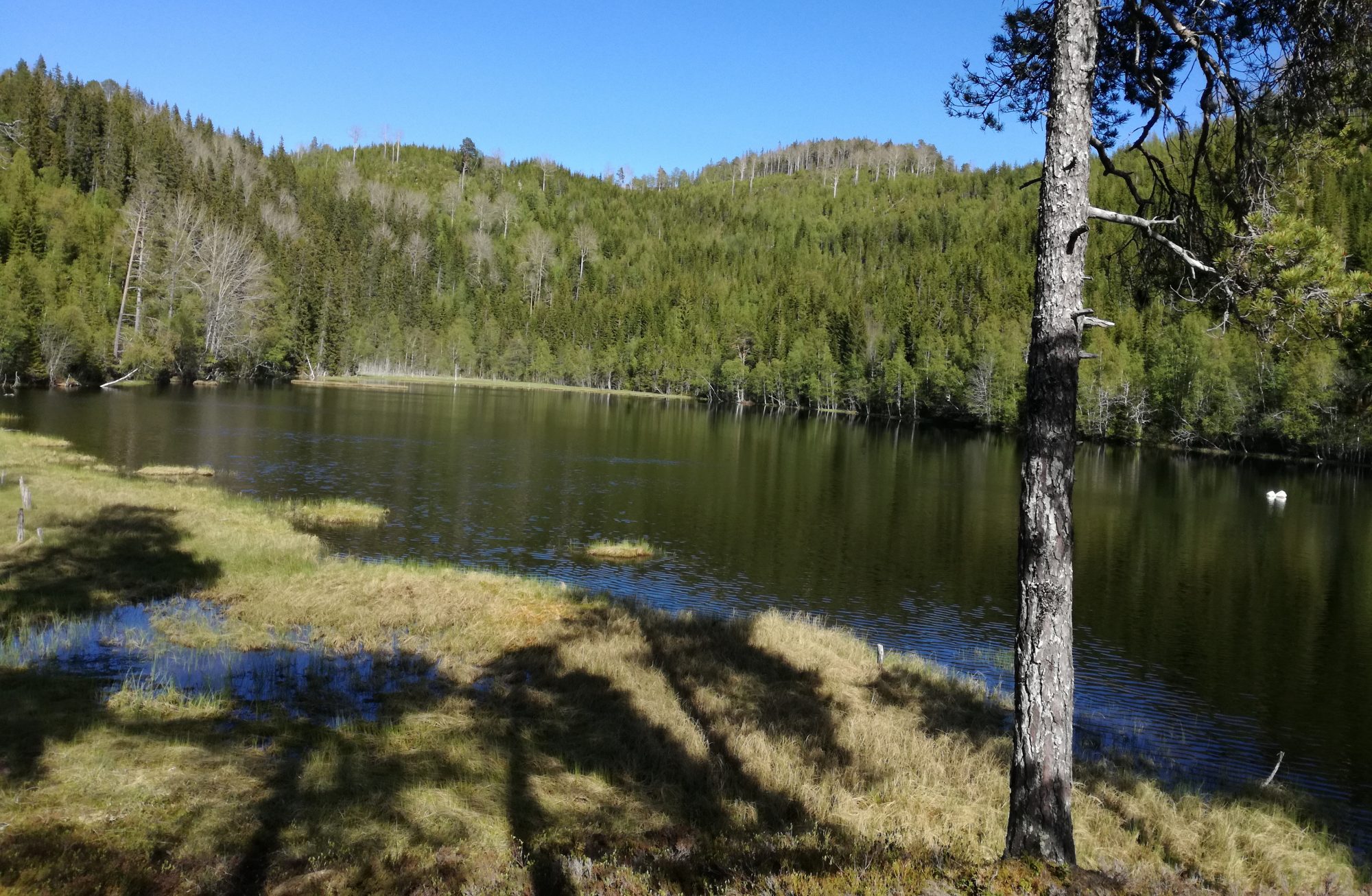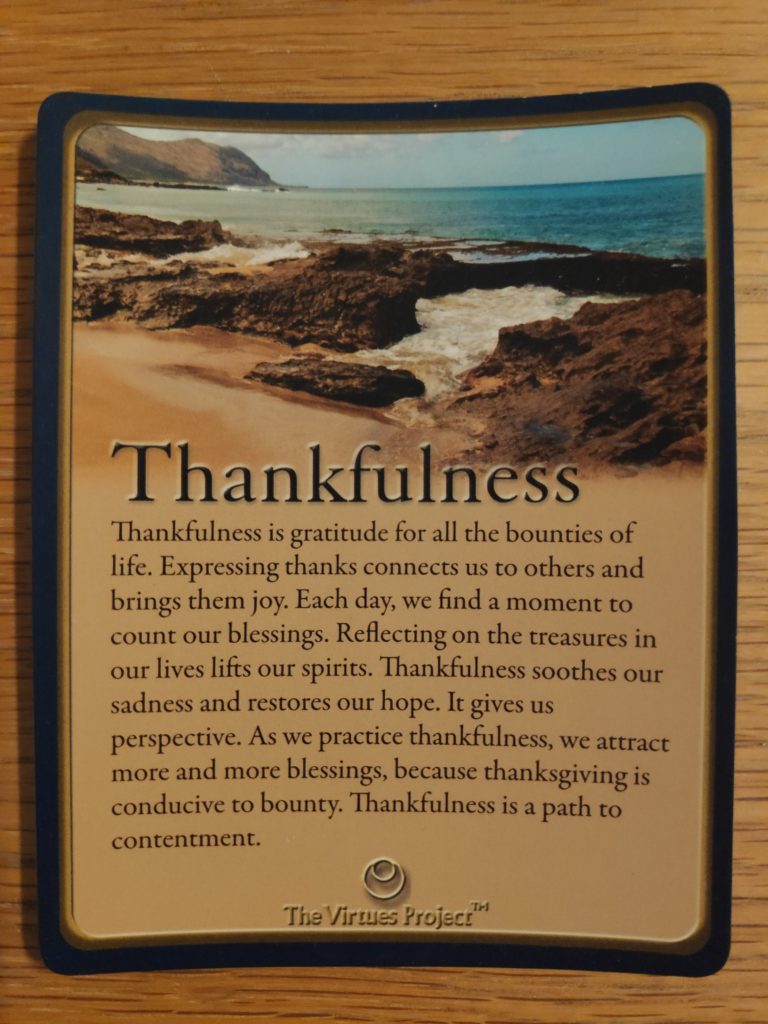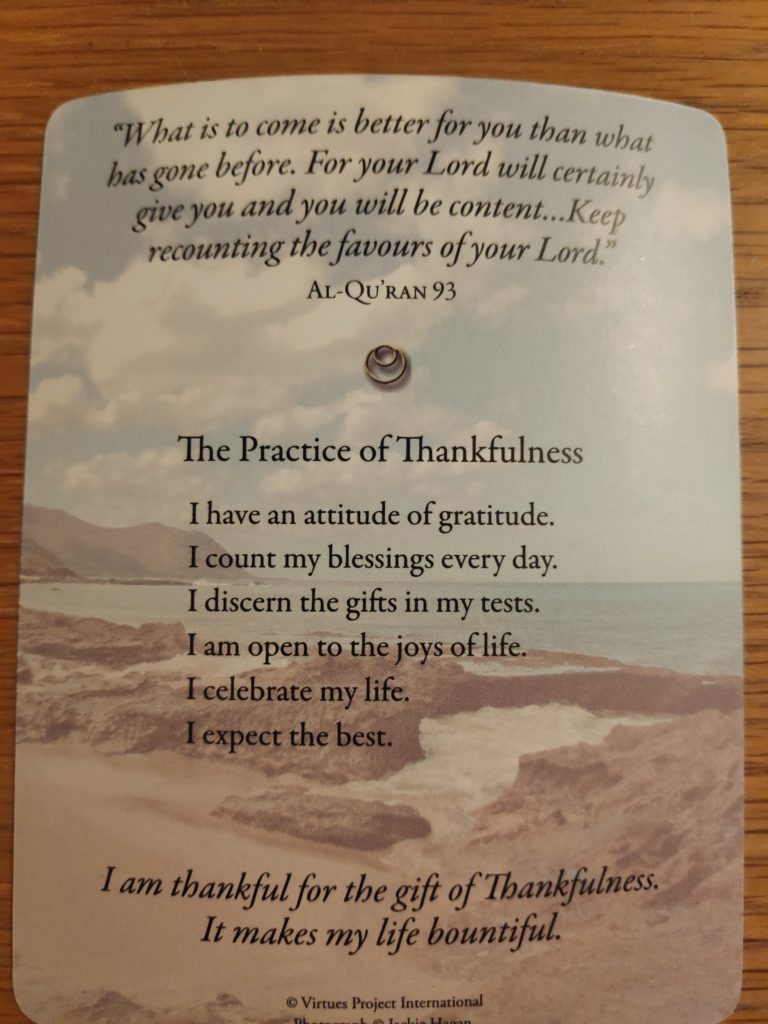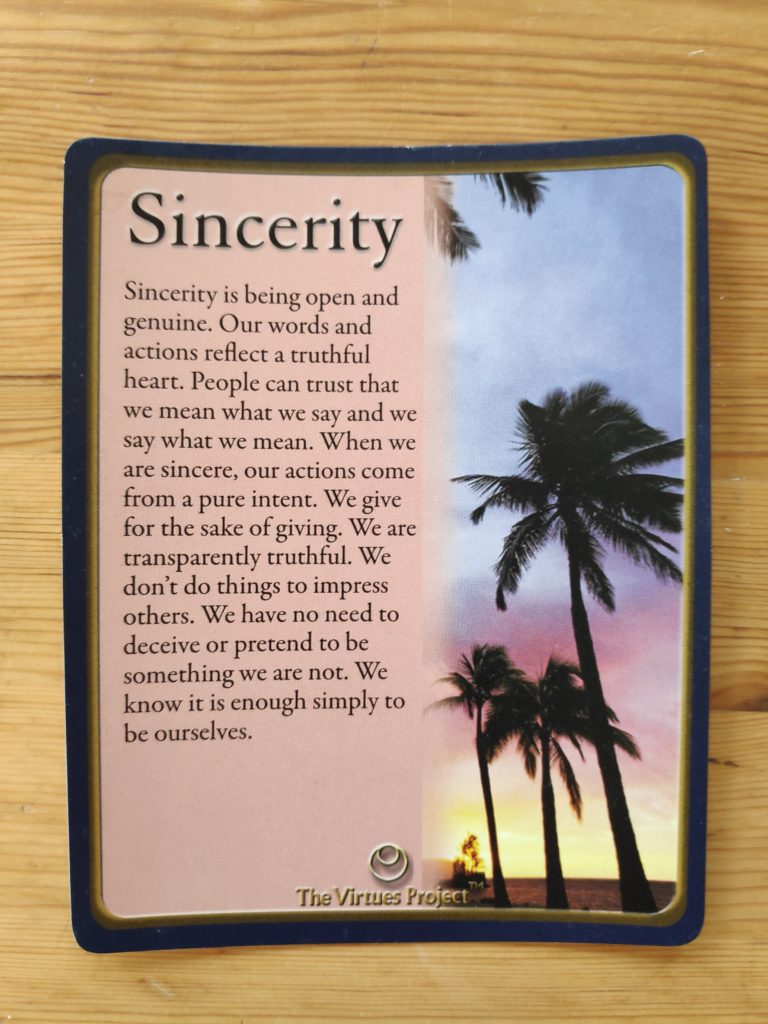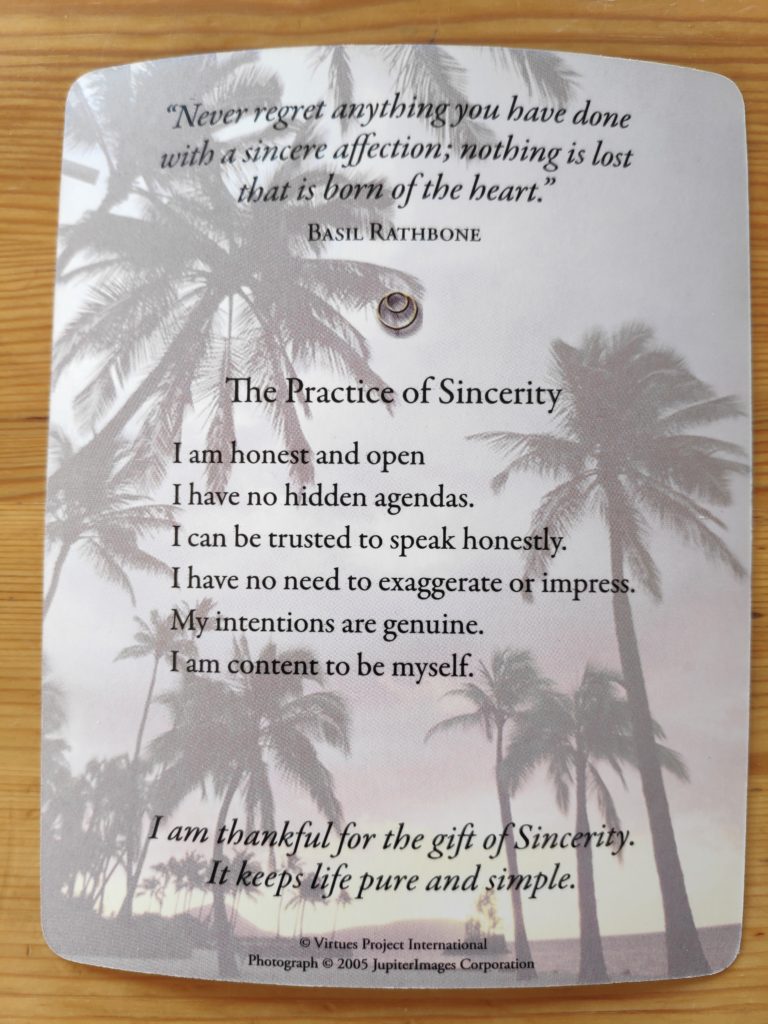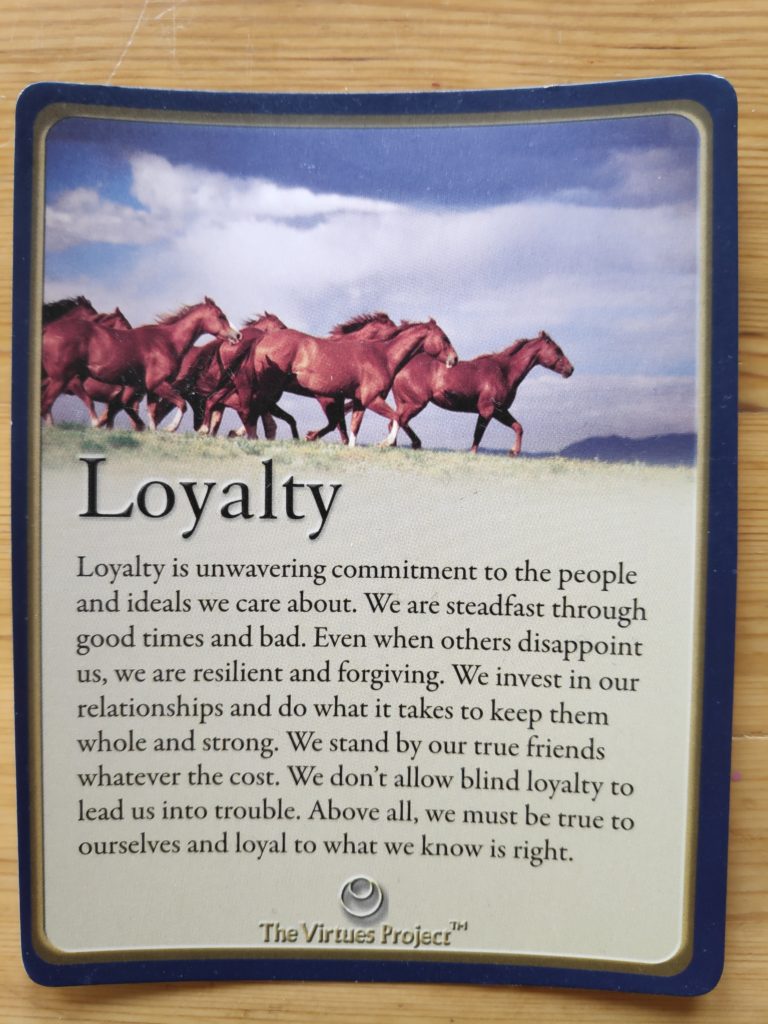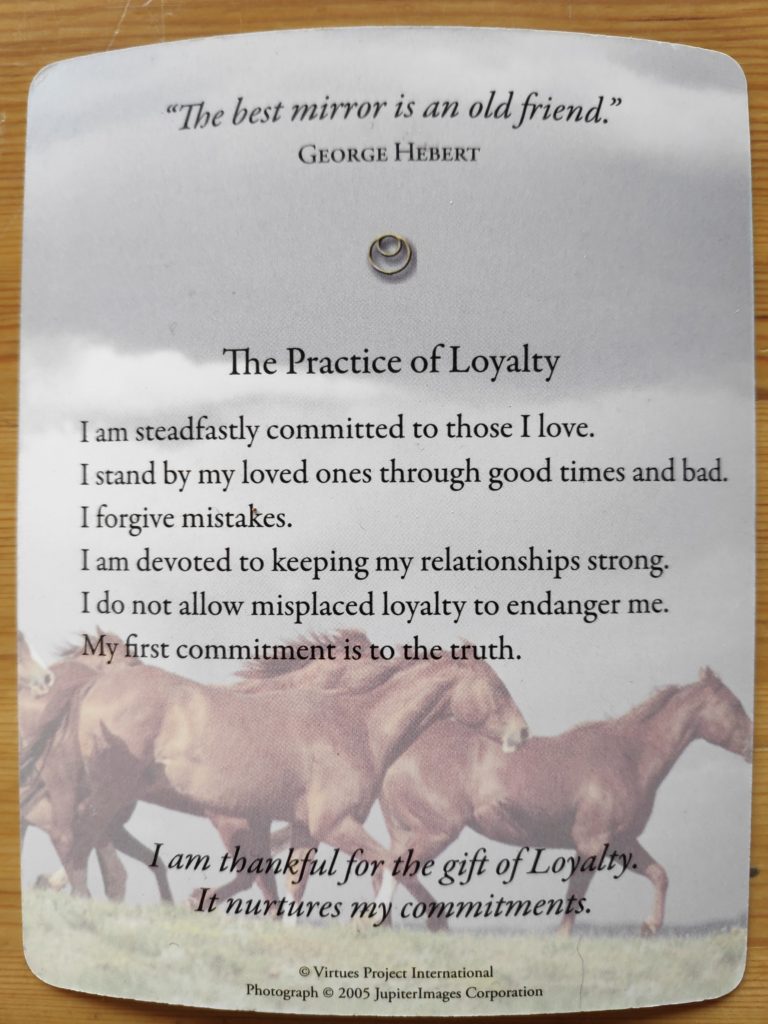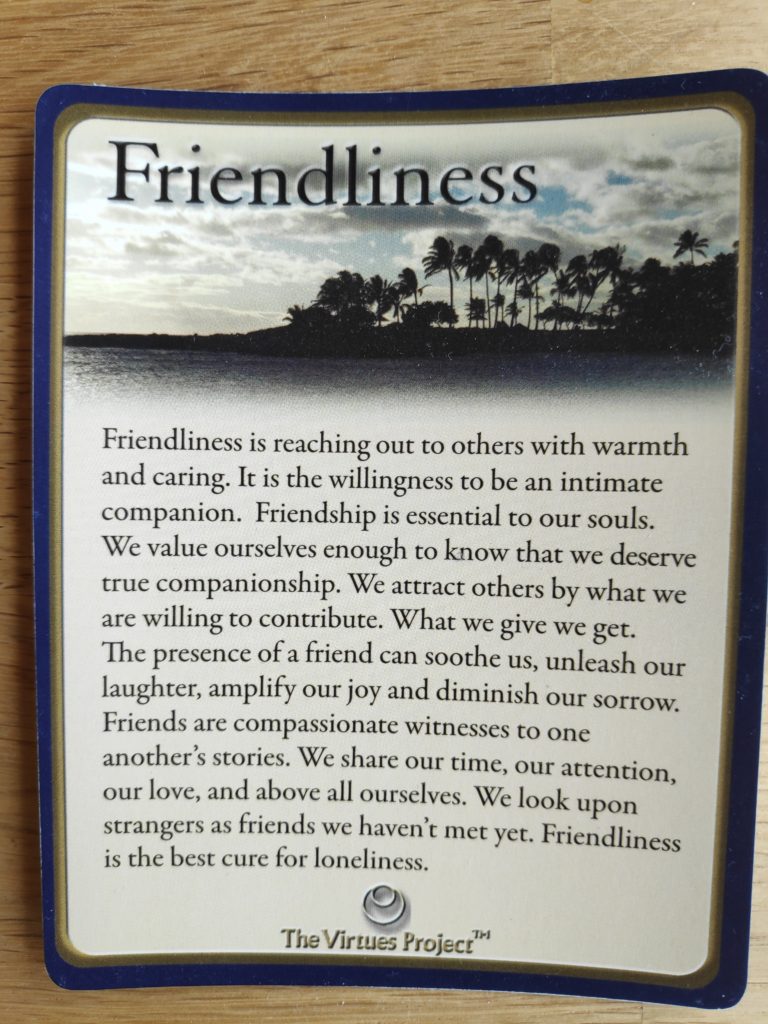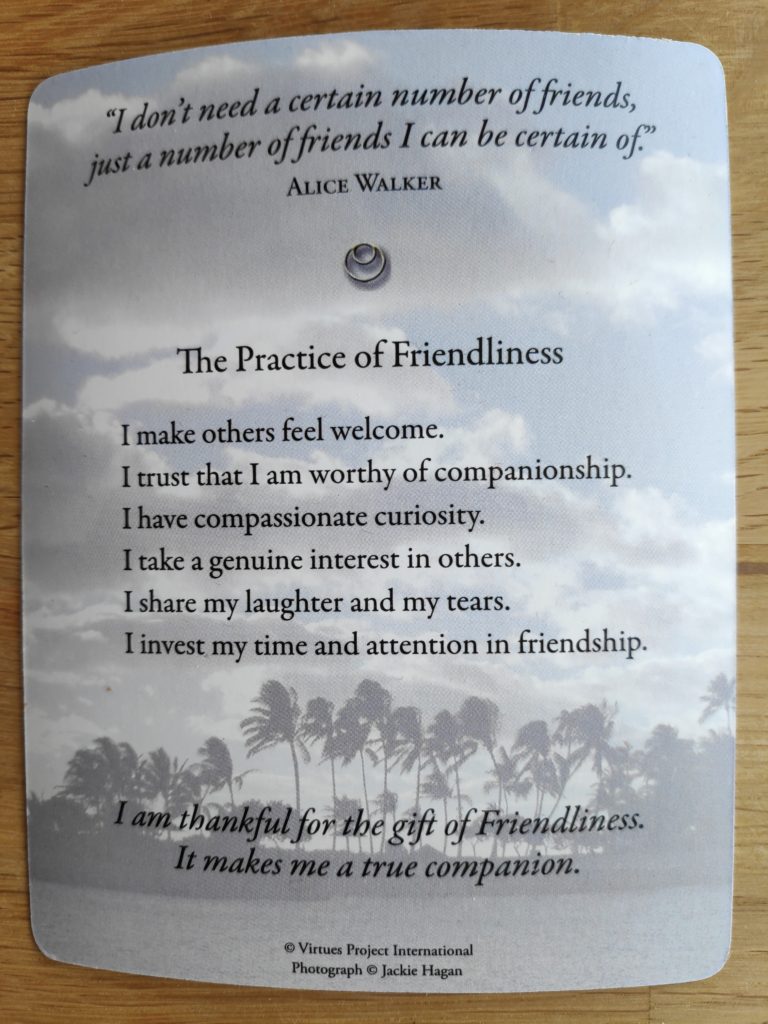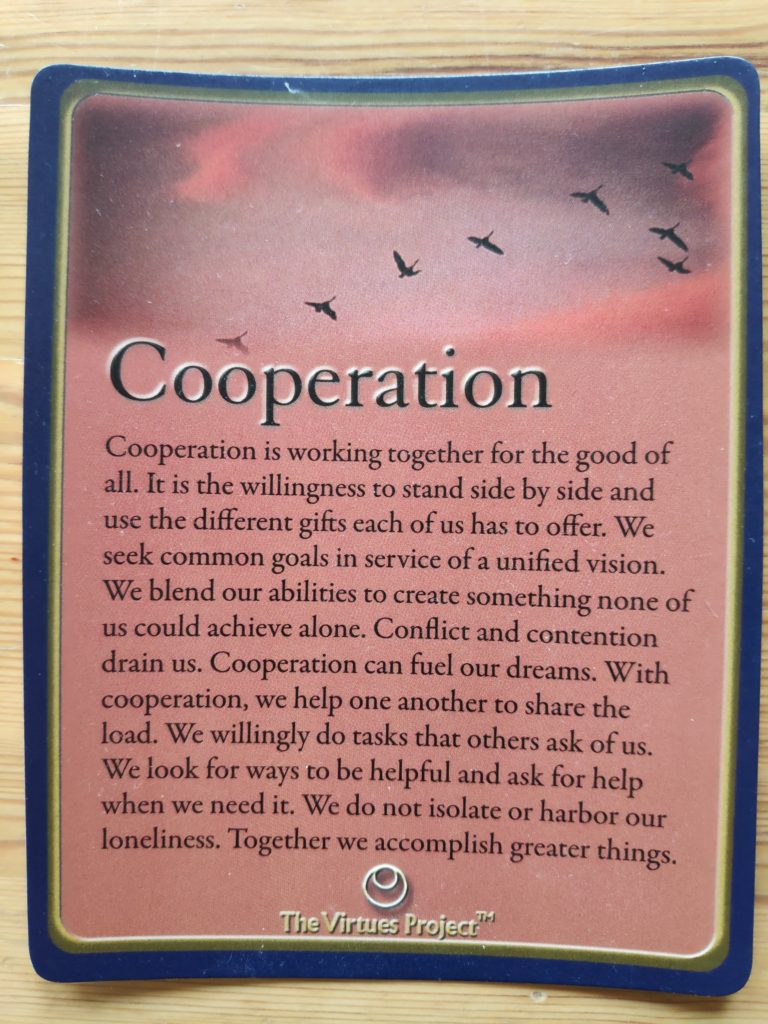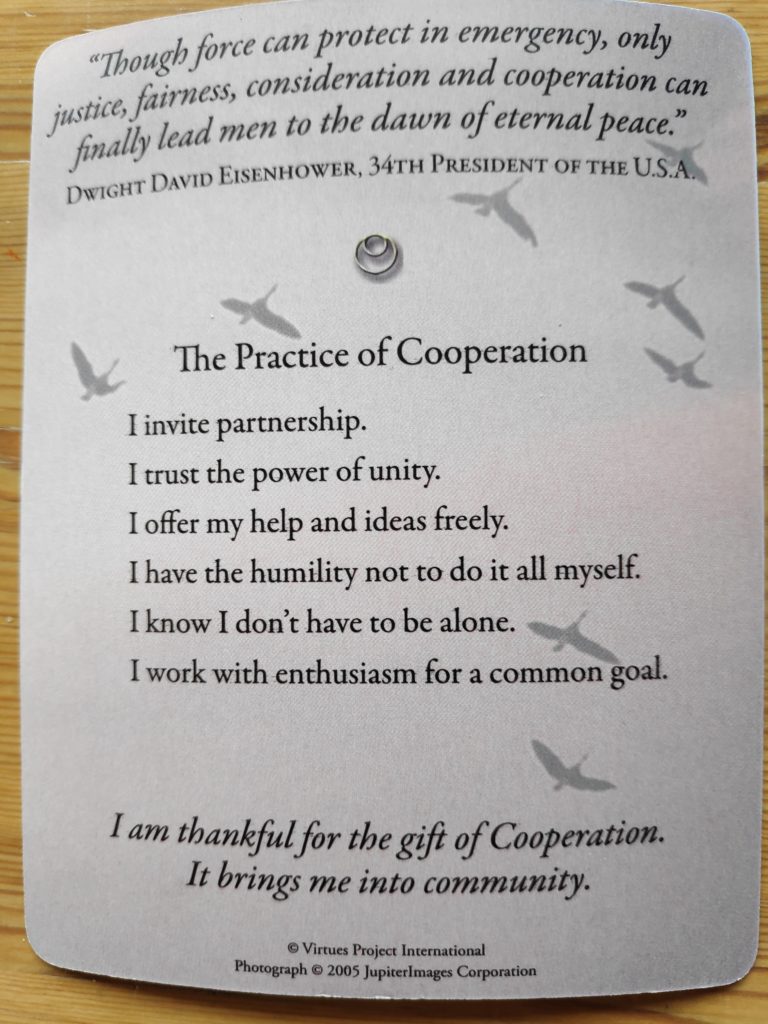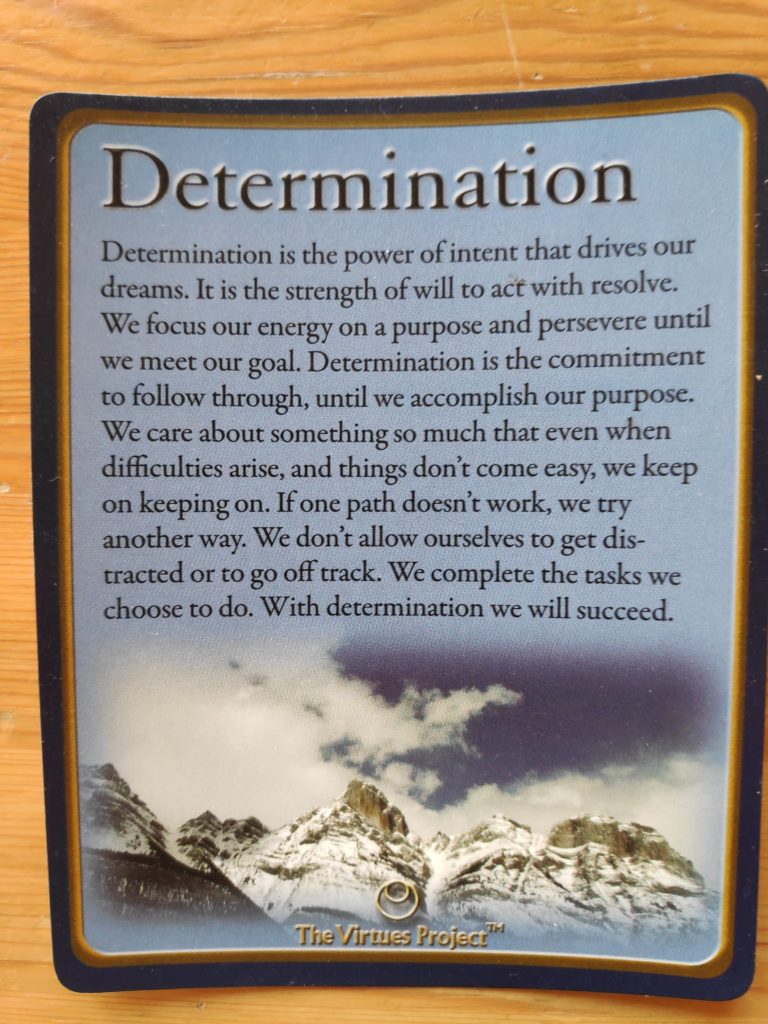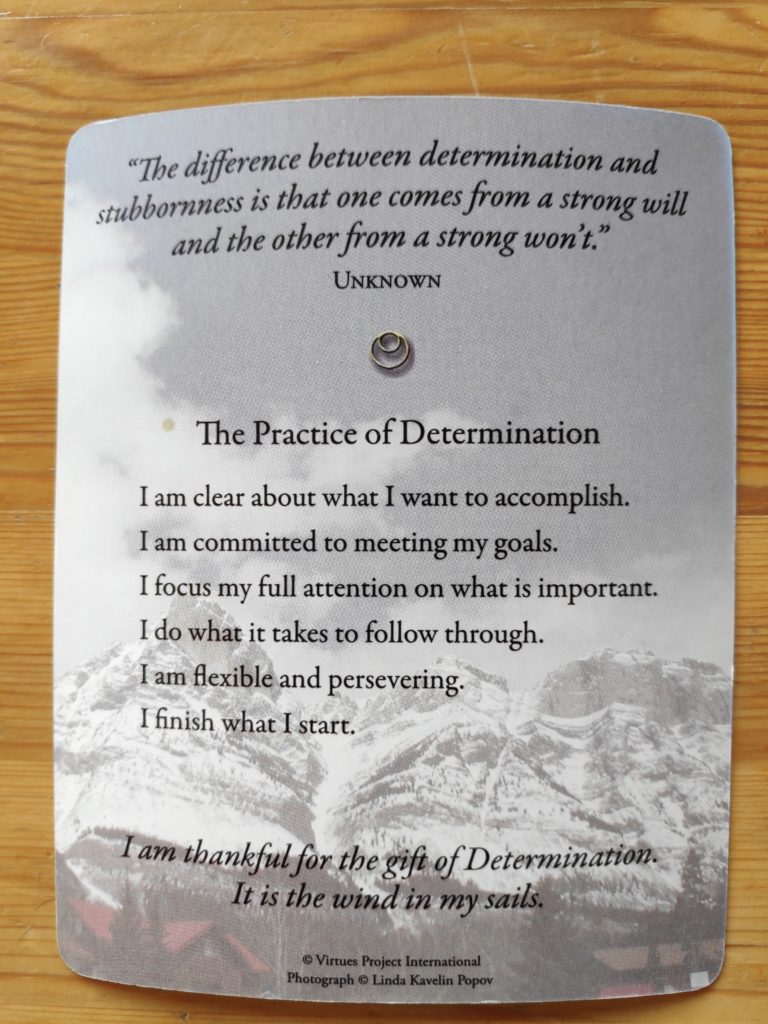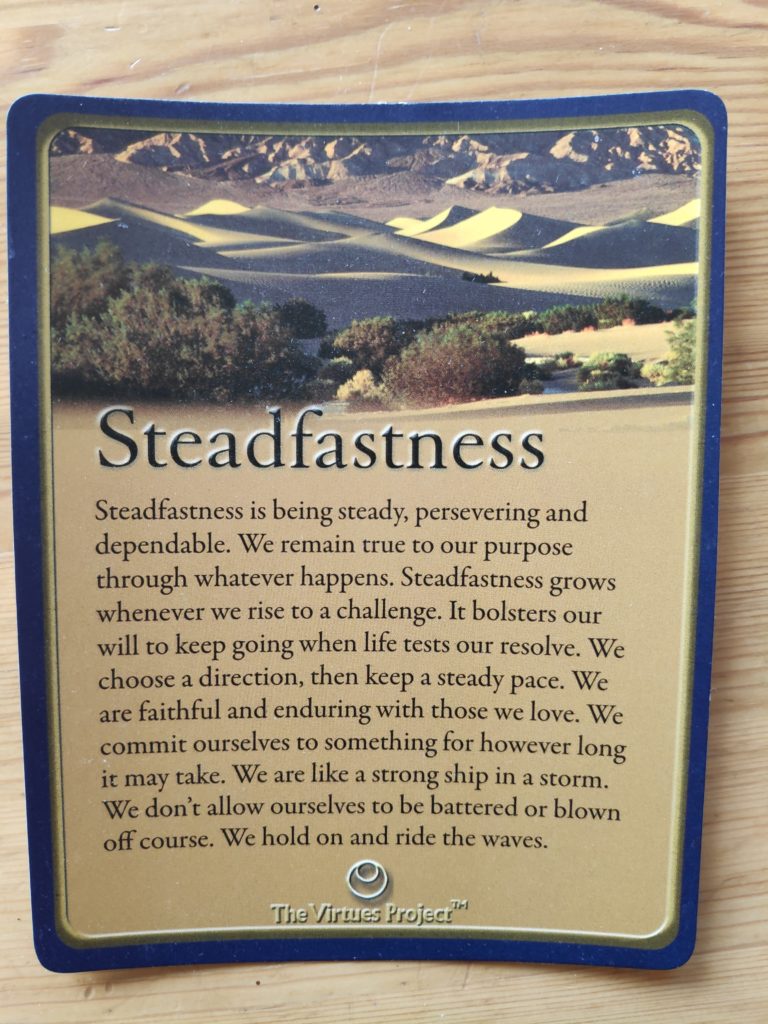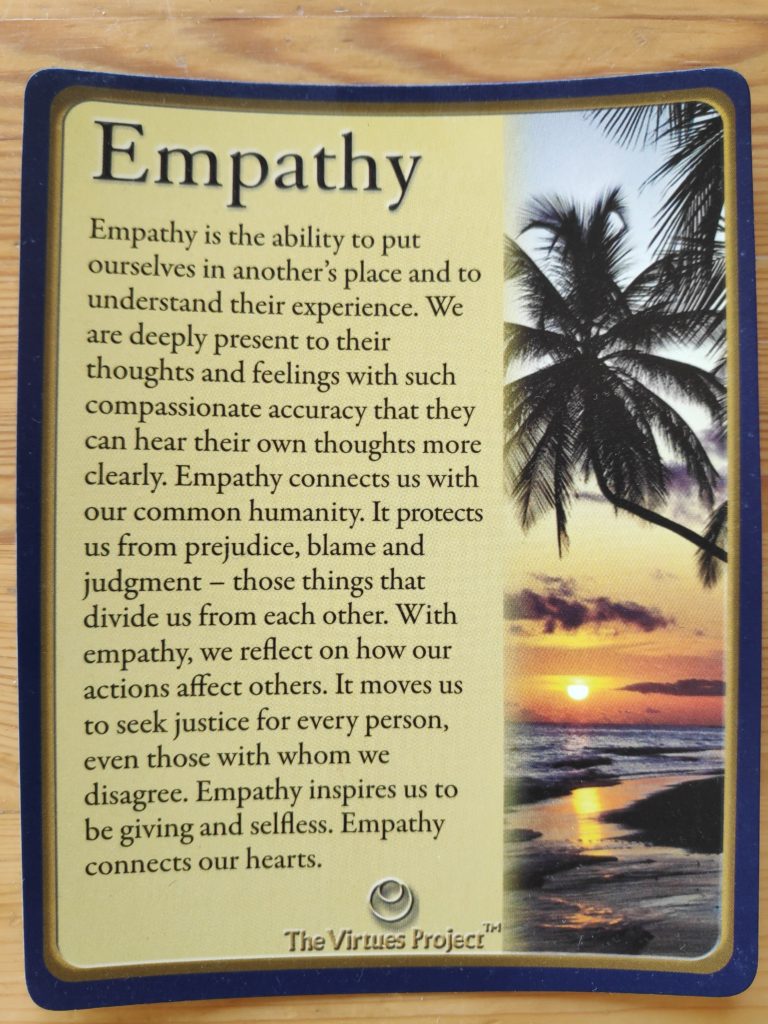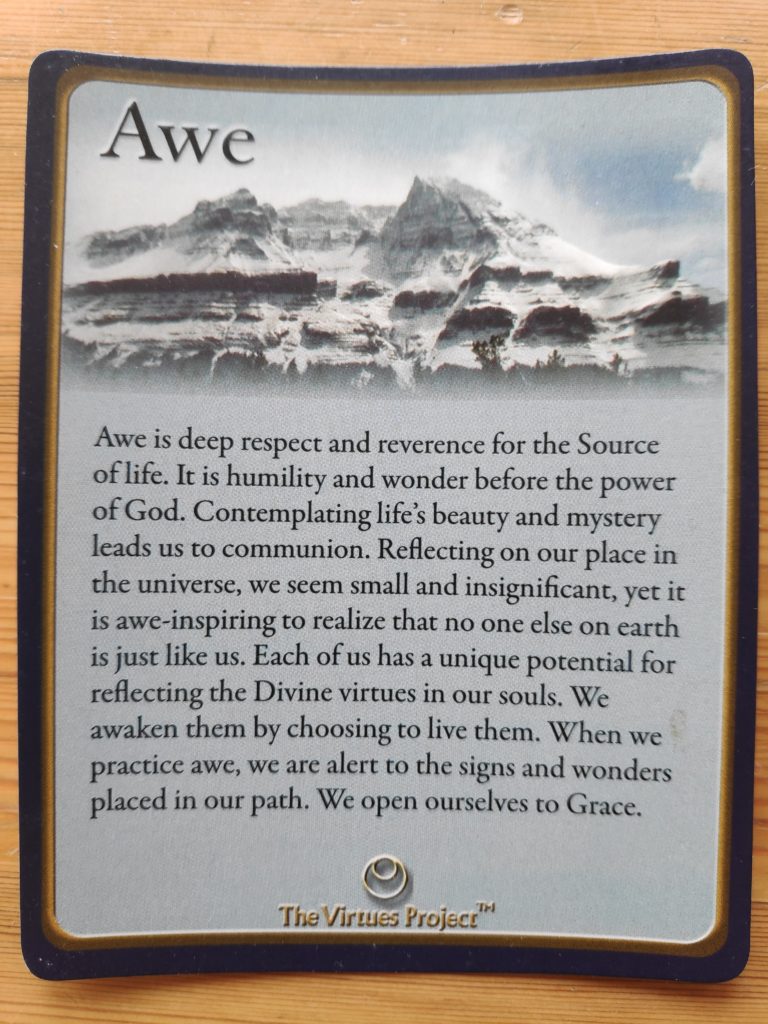I first came across The Virtues Project in about 1993 and have used its principles ever since. Reading the latest facilitator bulletin that comes out roughly once a month, I came across this sentence: “Openness is the willingness to consider new ideas and listen to others with an open mind.”
Yesterday we had a neighboring couple come for a visit and the four of us enjoyed the conversation immensely. As one person commented, we went into depth in the topics we discussed. I felt that everyone was listening to each other and actually sharing ideas.
I want to share with you the virtue of openness and how it is something that is to be worked with.
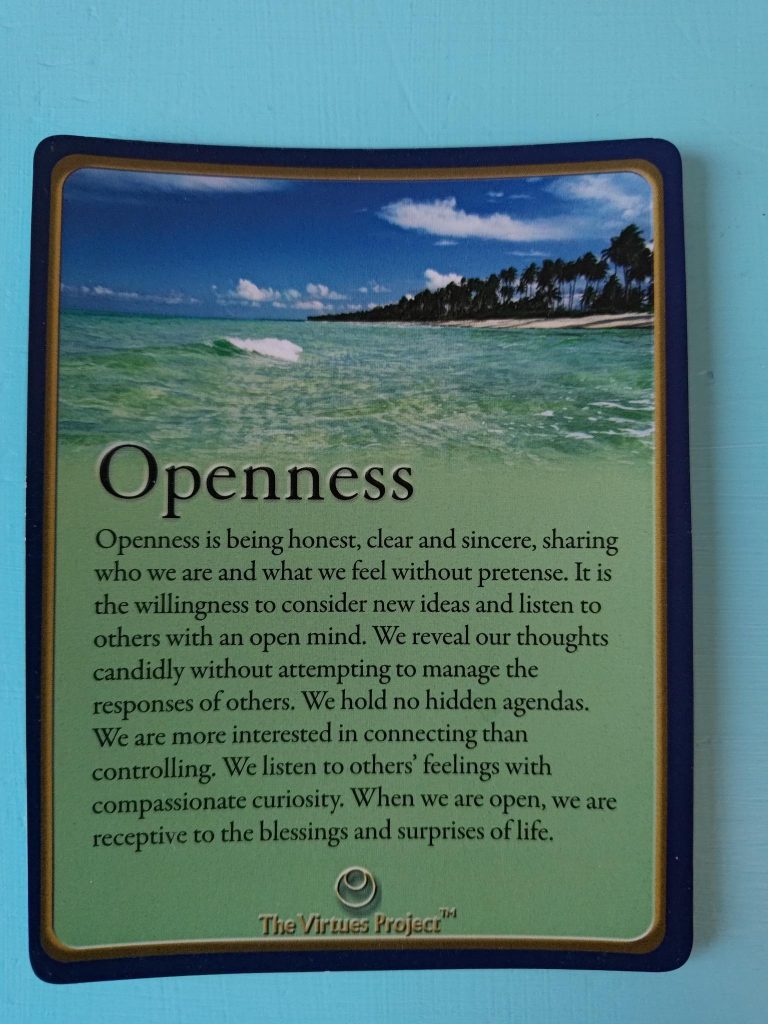
The Virtues Project
The Virtues Project started with a book, a guide for parents on what to teach their children. There were 52 virtues, one for each week of the year. I read the book, became enthusiastic with the working method and started implementing the strategies in my family. My two children will remember the weekly family meetings to pick and discuss a new virtue and other family matters that needed to be dealt with.
In addition to the virtues themselves, the Virtues Project also encompasses five strategies:
- Speak the language – you have to use the names of the virtues to help children (or adults) learn what is the correct way of being and doing.
- Recognize teachable moments – children are only open for learning at certain moments and the trick is to learn when these moments are. These moments don’t always last very long.
- Set clear boundaries – children need limits on what they are allowed to do, but the adults must be clear and consistent. The boundaries will change as children grow older. Even adults must set limits as to what they are willing to do.
- Honor the spirit – we must respect children and encourage them to learn new things. This also includes creative work and reflection.
- Offering companioning – by listening one can help another person with their problems and let them find the solution that will work for them.
The Virtues Project has grown in the last 30 years and encompasses more than teaching one’s own children what is good behavior. The strategies and the language of the virtues are used in many schools around the world. A facilitator is someone who has taken training in how to use the Virtues Project and teach it to others. If you are unfamiliar with the Virtues Project and would like to learn more about their work, you can read about them here.
Willingness
But back to the quotation that I started with. “Openness is the willingness to…” How willing are you? What do we really mean by this word, willingness? Are you only willing, if it is something you already know how to do, or if it is your own idea? Or, are you willing to look at other people’s perspective and new ideas? Do you put yourself in situations where you are open to others who are different than you? Are you willing to try new things?
It is always easier to go along with someone who shares the same ideas as yourself. One of the problems in the world today is the fact that we tend to spend our time with people who share the same ideas as ourselves. We are unwilling to be with those who are different. But this unwillingness to be with those who are different limits our ability to grow and improve ourselves. Unless we listen to new ideas, how can we become better people?
Consider New Ideas
“Openness is the willingness to consider new ideas…” Are you stuck in a rut? Do you even want to get out of the rut? Are you willing to listen to new ideas and reflect on them, to consider them?
I am currently reading a book about the climate crisis. Too many people in the world today are stuck in the rut of “business as usual” even though it is killing the planet and is unsustainable. The Earth’s resources are running out. How willing are you to change the way you think about consumption and your contribution to the challenges that the planet Earth is facing today? I am trying to work with the ideas in the book I am reading and find new ways that I can reduce my drain on the world’s resources.
No matter our age, whether we are young or older, we can learn from other people, from books, videos and documentaries. We have to consider the source of these ideas, and whether they are reliable. We must also consider and reflect on the ideas themselves. Do they make sense? How does it all fit in with my view of the world? Does my view of the world need to change? In what way should I change? Where can I find new ideas to help me make better decisions about how to live my life?
Listen to Others
“Openness is the willingness to consider new ideas and listen to others…” When you read a book, or talk to a person, are you really listening to the author or the person? How open are you to changing the way you think, or to accepting new ideas?
Many people don’t really participate in a conversation, they just wait for the other person to finish talking so that they can talk themselves. Listening to others means really taking in what they are saying, reflecting on their words and meaning and then actually discussing the ideas that have been presented.
An Open Mind
“Openness is the willingness to consider new ideas and listen to others with an open mind.” When you listen, do you listen with an open mind? Are you willing to change the way you think? Are you willing to learn about new ways of doing things?
Especially as we get older, we may think that the way we have always done things is the best way. I used to tell the teenagers that I taught that one of the advantages of traveling is to see that there are many ways of doing things and that none of them is “the right way”, they are just different. During life we pick up some of these different ways from others. We don’t always have to do things the way we were taught as children. All people have room to grow and develop even when they have acquired many years of living. This ability to change and improve ourselves is what keeps us young in mind, no matter how old the body is.
We really have to be open to change, if we want to live a healthy and rewarding life. In order to know how to change, or what to change to, we need to be open to new ideas which we reflect on and adapt to our own lifestyle. Sometimes we make big changes, for example, cutting back on how much we drive, and sometimes we make smaller changes, for example, whether we eat local food, or imported food.
The Practice of Openness
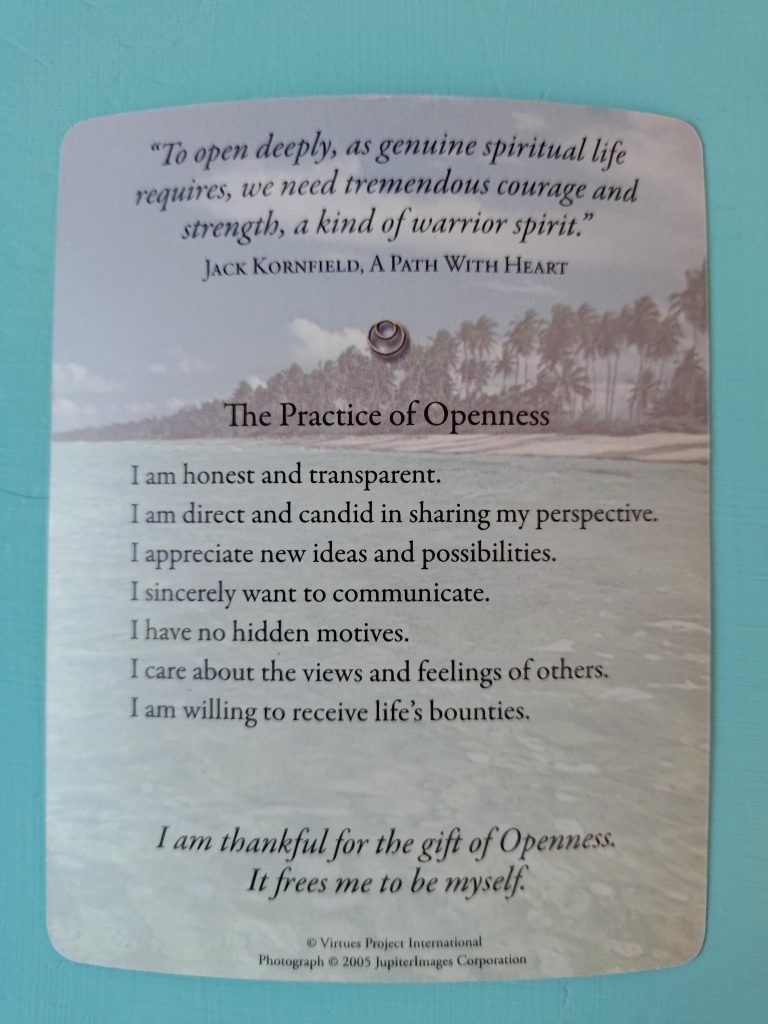
“I am honest and transparent. I am direct and candid in sharing my perspective. I appreciate new ideas and possibilities. I sincerely want to communicate. I have no hidden motives. I care about the views and feelings of others. I am willing to receive life’s bounties.”
Today’s challenge to you as my reader, is to find something new and different to read about, or to find a person outside of your usual social environment to converse with. Have an open mind and be willing to really listen to the ideas that others have.
